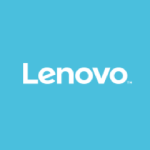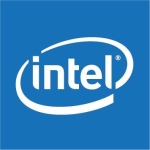By implementing Dell PowerEdge Rack Servers, we were looking for a solid infrastructure that would allow us to run our business processes and our database and web environments. With PowerEdge, we have achieved that, and we are happy.
Thanks to the durability and performance that Dell PowerEdge Rack Servers have, our company feels very confident.
I cannot assess Dell PowerEdge Rack Servers in terms of energy consumption because we are not very aware of what each PowerEdge server consumes. In terms of the capability of Dell PowerEdge Rack Servers for handling the evolving needs of high-performance workloads, we usually have the servers oversized, so we do not have any problems. We are fine.
Dell PowerEdge Rack Servers have reduced unplanned production downtime. Service outages, for example, because of problems with the servers are marginal. Normally, the problems that we have with system availability are because of communication.
We use the OpenManage console, and we have made good use of it. We started working with OpenManage a long time ago, and we have done tasks as simple as restarting a remote server from OpenManage, so we do not have to go to an actual office to do a restart.
Using PowerEdge Rack Servers has affected the overall flexibility of our operations or business, but it is not just because of the use of PowerEdge. It is also because of the use of virtual infrastructure. In this case, we work with VMware, so we do have a lot of flexibility. We can add a server, more data, or more processes. Below all that, the physical layer provided is through PowerEdge, so it has made our operations easier.
Lately, we feel that we need an improvement in our servers. Surprisingly, we have seen some servers here that do meet these characteristics. They are slightly smaller servers.
On ships, we have racks to be able to mount devices, and both the servers and the communication devices have to be small. They have to be small in depth. We need servers with the same power and the same characteristics as in the office or on land, but we would like them to be smaller. They will be more practical when it comes to being able to handle them and place them at locations where we have space restrictions.
The setup was of moderate complexity. It was normal.
When we set up the virtual infrastructure or when we update it, the strategy is always to do it in steps. We change each server separately and take small steps and obviously avoid any service outages.
In terms of environment, we have a private cloud and on-premise setup. We have different providers, such as Belorcio and Telefónica, and we have two large CPDS, one is in a private cloud that is outside the organization and the other one is on-premises.
I would rate Dell PowerEdge Rack Servers a nine out of ten.
Foreign Language:(Spanish)
Hardware robusto, gestión sencilla con OpenManage y soporte excelente
¿Durante cuánto tiempo utiliza los servidores en rack Dell PowerEdge?
He estado usando servidores en rack Dell PowerEdge durante más de 20 años.
¿Cuál es su principal caso de uso de esta solución? (Incluya detalles sobre su entorno).
Utilizamos principalmente servidores en rack Dell PowerEdge para servidores web, servidores de bases de datos, plataformas de virtualización y servidores en ubicaciones remotas y en barcos. Somos una empresa de transporte de pasajeros en barcos y tenemos nuestros servidores allí también, así que hay de todo un poco.
Comparta cómo los servidores en rack Dell PowerEdge han mejorado su infraestructura de TI. Si no fue así, explique por qué.
Al implementar los servidores en rack Dell PowerEdge, buscábamos una infraestructura sólida que nos permitiera ejecutar nuestros procesos comerciales y nuestros entornos web y de bases de datos. Con PowerEdge lo hemos logrado y estamos contentos.
Gracias a la durabilidad y el rendimiento que tienen los servidores en rack Dell PowerEdge, nuestra empresa se siente muy segura.
No puedo evaluar los servidores en rack Dell PowerEdge en términos de consumo de energía porque no somos muy conscientes de lo que consume cada servidor PowerEdge. En términos de la capacidad de los servidores en rack Dell PowerEdge para manejar las necesidades cambiantes de las cargas de trabajo de alto rendimiento, generalmente tenemos servidores sobredimensionados, por lo que no tenemos ningún problema. Estamos bien.
Los servidores en rack Dell PowerEdge han reducido el tiempo de inactividad de producción no planificado. Las interrupciones del servicio que ocurren debido a problemas con los servidores, son marginales. Normalmente los problemas que tenemos con la disponibilidad del sistema son por culpa de la comunicación.
Usamos la consola OpenManage y la hemos aprovechado bien. Comenzamos a trabajar con OpenManage hace mucho tiempo y hemos realizado tareas tan simples como reiniciar un servidor remoto desde OpenManage, por lo que no tenemos que ir a una oficina físicamente para reiniciar.
El uso de servidores en rack PowerEdge ha afectado la flexibilidad general de nuestras operaciones o negocios, pero no se debe sólo al uso de PowerEdge. También se debe al uso de la infraestructura virtual. En este caso trabajamos con VMware, por lo que tenemos mucha flexibilidad. Podemos agregar un servidor, más datos o más procesos. Además, la capa física proporcionada es a través de PowerEdge, por lo que ha facilitado nuestras operaciones.
¿Qué características le han parecido más valiosas y por qué?
La robustez del propio hardware es valiosa. Hemos tenido servidores PowerEdge funcionando incluso después de que expiraron los plazos de garantía. Por ejemplo, hace unos cuatro o cinco años actualizamos la plataforma de virtualización. Uno de los servidores que teníamos en esa plataforma tenía diez años. Estos servidores tienen mucha durabilidad. Se puede ver que están bien hechos.
¿En qué áreas se podrían mejorar los servidores en rack Dell PowerEdge?
Últimamente sentimos que necesitamos una mejora en nuestros servidores. Sorprendentemente hemos visto aquí en esta convención algunos servidores que sí cumplen con estas características. Son servidores un poco más pequeños.
En los barcos tenemos racks para poder montar dispositivos, y tanto los servidores como los dispositivos de comunicación tienen que ser pequeños. Tienen que ser pequeños en profundidad. Necesitamos servidores con la misma potencia y las mismas características que en la oficina o en tierra, pero nos gustaría que fueran más pequeños. Serán más prácticos a la hora de poder utilizarlos y colocarlos en lugares donde tengamos restricciones de espacio.
¿Utilizó anteriormente una solución diferente? De ser así, ¿por qué la cambió?
No utilizamos ninguna solución similar anteriormente.
Antes de elegir, ¿evaluaste otras opciones? ¿De ser asi, cuales?
Realmente no evaluamos otras soluciones. Hemos hecho algunas pruebas con otros fabricantes que no salieron demasiado bien. Estamos contentos con nuestra solución actual.
¿Qué aconseja a otros sobre el costo de instalación, el precio y/o la licencia?
No sé mucho sobre los precios. Es mi colega quien tiene esos datos.
¿Cuáles son sus impresiones sobre la escalabilidad de esta solución?
Puedes actualizarlo. Puede agregar más capacidad, más memoria y más discos y eso es todo. Nada en especial.
¿Cuáles son sus impresiones sobre la estabilidad de esta solución?
La estabilidad de los servidores en rack Dell PowerEdge es muy buena.
¿Has visto el ROI (Retorno de la Inversión)? En caso afirmativo, ¿de qué manera (es decir, métricas/puntos de datos)?
Es una apuesta segura. Tenemos servidores que ya están fuera de su ciclo de vida y no han fallado en diez años. Algunos componentes como el disco, especialmente los discos antiguos, pueden fallar, pero aparte de eso, no ha habido ningún problema. Por eso estos servidores son confiables.
¿La configuración inicial fue sencilla o compleja y de qué manera?
Fue de complejidad moderada, normal.
Cuando configuramos la infraestructura virtual o cuando la actualizamos, la estrategia siempre es hacerlo por pasos. Cambiamos cada servidor por separado y tomamos pequeños pasos y obviamente, evitamos cualquier interrupción del servicio.
En términos de entorno, contamos con una nube privada y una configuración local. Tenemos diferentes proveedores, como Belorcio y Telefónica, y tenemos dos CPDS grandes, uno está en una nube privada que está fuera de la organización y el otro es on-premise.
¿Lo implementó a través de un equipo de proveedores o uno interno? Si se trata de un equipo de proveedores, ¿cómo calificaría su nivel de experiencia?
Usamos Belorcio, que es nuestro socio en Canarias. Somos de las Islas Canarias.
Cuéntanos tu experiencia con el servicio y soporte al cliente.
Su soporte es brillante.
¿Cómo calificaría esta solución en una escala del 1 al 10 en cuanto a servicio y soporte?
9
En una escala del 1 al 10 (1=peor, 10=mejor), ¿cómo calificaría los servidores en rack Dell PowerEdge? Por favor explique por qué.
Calificaría los servidores en rack Dell PowerEdge con un nueve de diez.













